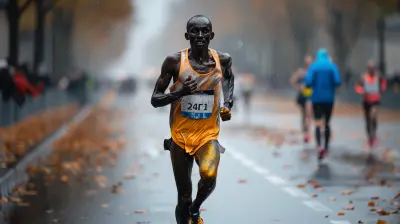Sports and Social Skills: How Team Sports Build Better Communicators
13 September 2025
Let’s face it — building strong communication skills isn't something that only happens in a classroom or during a corporate workshop. In fact, some of the best communicators out there probably spent more time on the field than behind a desk. Surprised? Team sports have a powerful way of shaping people into confident, articulate, and empathetic individuals. Why? Because every time an athlete steps onto a playing field, court, or rink, they're not just playing a game — they’re learning how to connect, collaborate, and communicate.
In this article, we’ll dive deep into how team sports help shape better communicators, both in and out of uniform. Whether you're a parent, a coach, a player, or just a curious reader, you’ll come away with a whole new appreciation for those Friday night lights or weekend league games.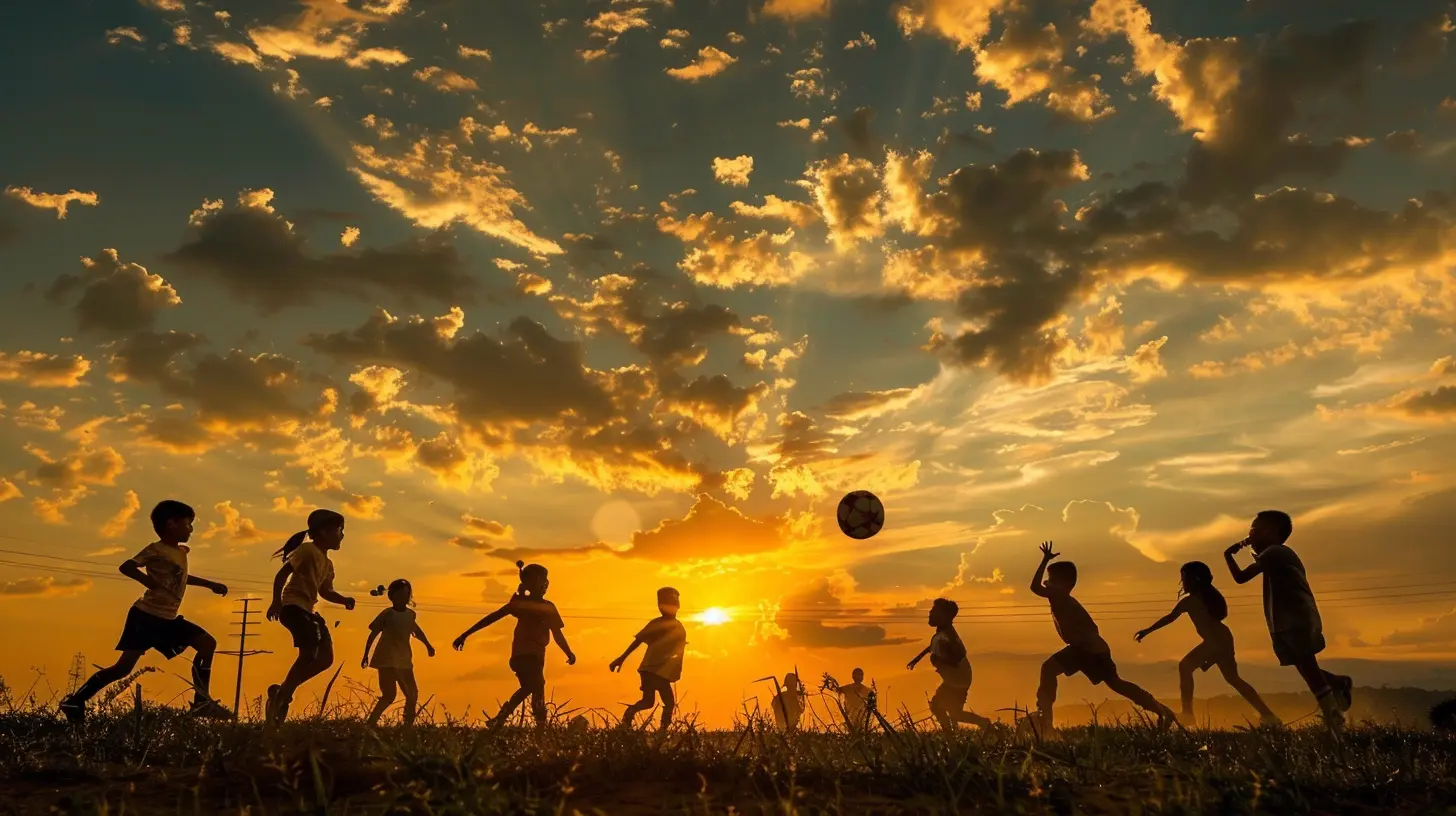
What Are Social Skills, Anyway?
Let’s keep it simple — social skills are the tools we use to interact with others. They include things like:- Listening actively
- Expressing thoughts clearly
- Understanding body language
- Building empathy
- Resolving conflicts healthily
And guess what? Team sports hit all of these. When you’re on a team, you quickly realize that winning isn’t just about individual performance — it’s about how well you play (and talk) with others.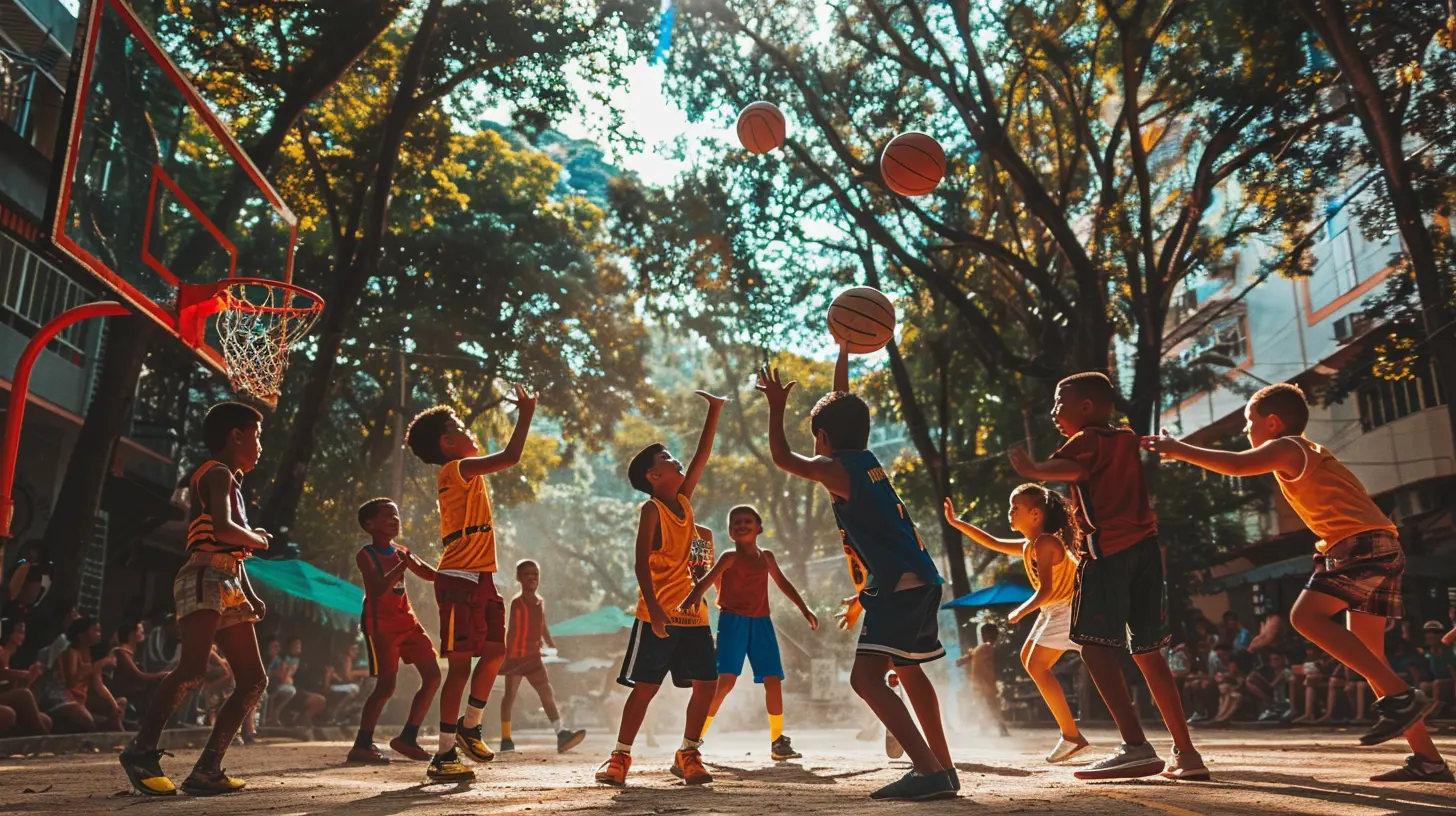
Communication: The Glue of Any Team
Ever tried playing soccer without saying a word to anyone? Or running a basketball play without signaling your teammates? Yeah, it doesn't go well. One of the first things young athletes learn is that communication is everything.Verbal Communication
On the field, talking is constant — calling out plays, giving a heads-up about an opponent, or shouting encouragement. This constant need to communicate builds confidence in speaking up. Over time, even the shyest players start finding their voice. It's a game-changer, literally and figuratively.Non-Verbal Communication
Sometimes, it’s not about what’s said — it’s about the look, a nod, a gesture. In high-speed, high-pressure situations, athletes learn to read body language like pros. A glance from a teammate can say “I’ve got your back” or “Go long!” without a single word.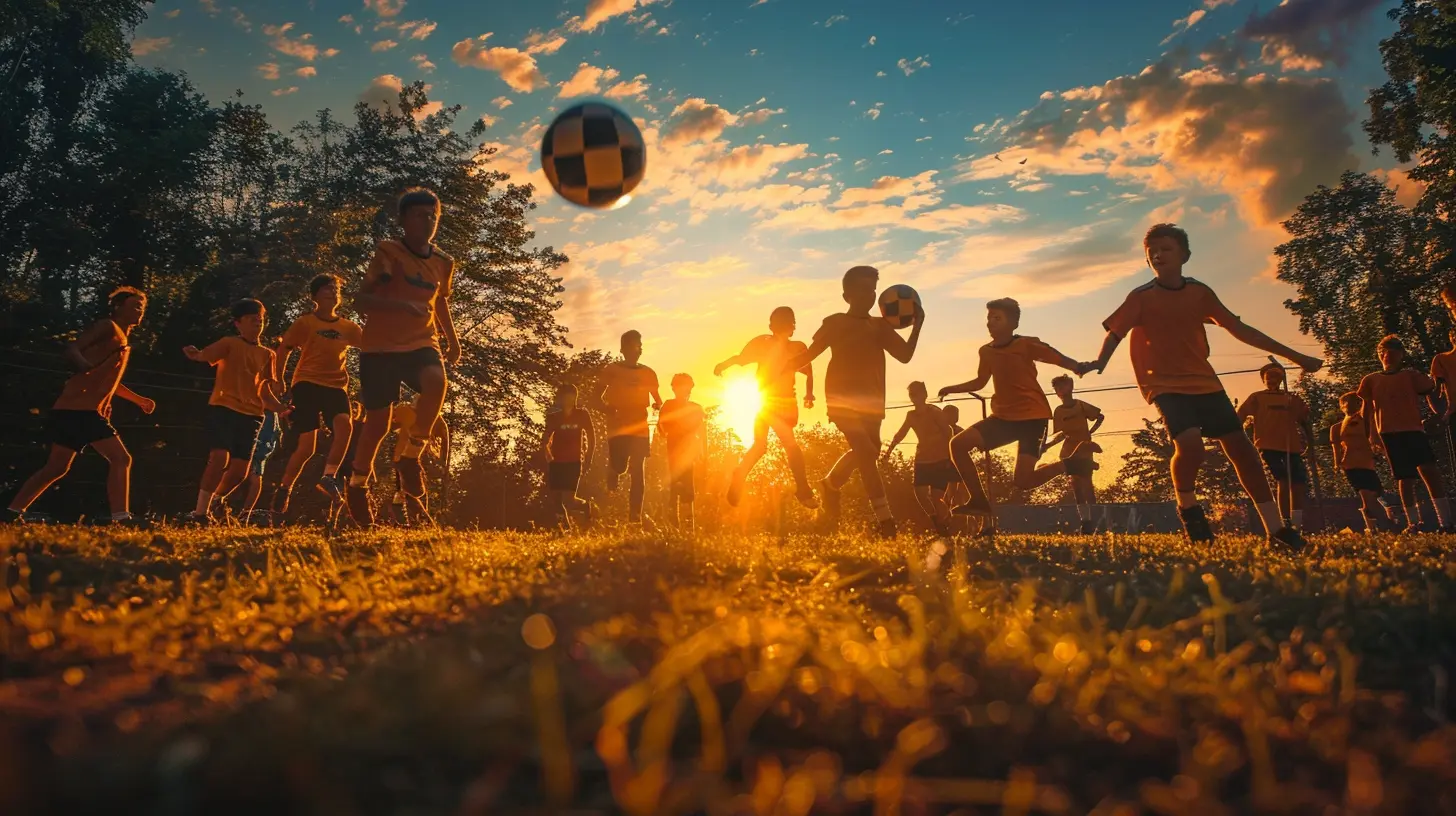
Active Listening: The Underrated MVP
Communication isn’t just about talking — it’s also about listening. In team sports, players must constantly take in information from coaches and teammates. There’s no room for tuning out. If you miss a call or ignore a signal, the whole team could suffer.Learning to truly listen helps athletes stay focused, respond quickly, and strengthen team trust. Off the field, this skill translates into better relationships and more effective collaboration in school or at work.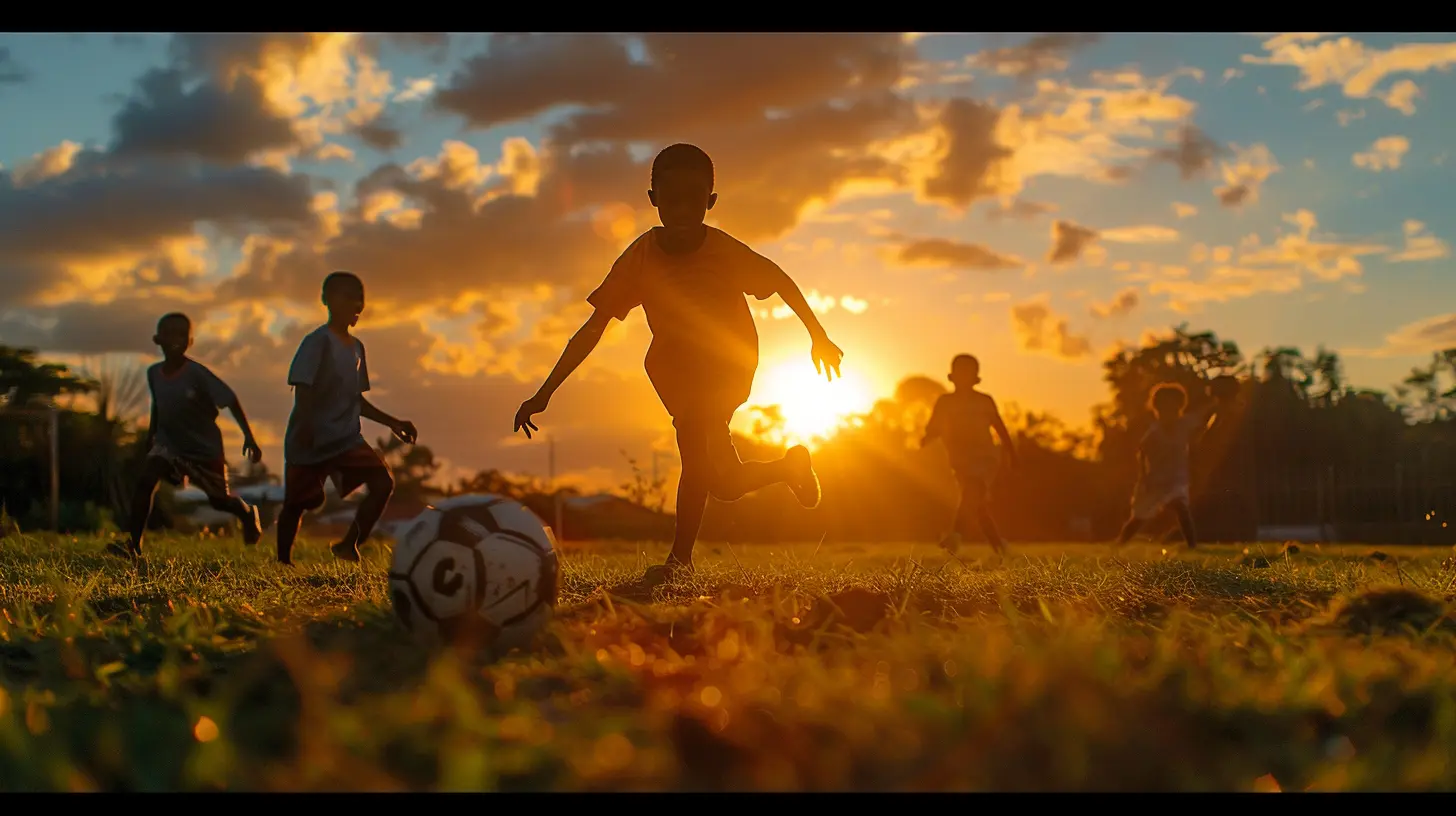
Building Empathy Through Shared Experiences
Think about it — sweating through grueling practices, losing close games, celebrating big wins — all of it forges a bond between teammates. These shared experiences create a deeper understanding of human emotions.Walk In Their Cleats
When your teammate misses that game-winning shot or fumbles the ball, you’ve been there. You get it. That empathy makes you more supportive, more mindful, and more connected to those around you. These habits extend beyond the locker room and into everyday life, helping you become a person others want to be around.Conflict Resolution: Learning to Argue Productively
Let’s be honest — not every practice is sunshine and high-fives. Teammates argue. Tempers flare. Miscommunication happens. But here’s the kicker — sports teach you how to deal with it.Playing Through the Tension
In the heat of the moment, players learn to manage emotions, address misunderstandings, and keep the bigger goal in mind: the team’s success. It’s not about being right; it’s about making things right. That’s a lesson you carry for life, whether you're trying to settle a dispute in the workplace or smoothing out a spat with a friend.Leadership Starts With Communication
Team sports have a sneaky way of turning players into leaders. And no, leadership isn’t about being the loudest voice in the huddle. It’s about guiding, motivating, and uplifting others — all rooted in strong communication.The Rise of the Quiet Leader
Not every leader is a natural-born speaker. Some lead by example, giving timely advice, encouraging teammates, or simply being the consistent, calming presence during chaos. Team sports give people the chance to try on different leadership styles and figure out what works best for them.Social Confidence: The Hidden Trophy
For many young athletes, stepping into social situations can be intimidating — until they’ve been part of a team. That team dynamic builds self-assurance.From Bench to Brave
Making mistakes in games teaches resilience. Giving a teammate feedback builds confidence. Speaking up in huddles removes the fear of being judged. Slowly but surely, athletes develop a level of comfort in their own skin, making them more socially agile and outgoing.Team Diversity: A Real-World Classroom
Sports teams bring together people from all walks of life. Different cultures, backgrounds, beliefs — all sharing a common goal. That kind of environment is a goldmine for learning how to communicate across differences.Unity in Uniform
Players learn to appreciate different perspectives, adapt their communication styles, and celebrate diversity. It’s one thing to read about inclusion in a textbook; it’s another to live it on the field, side by side.Coaches: The Unsung Communication Mentors
Behind every great team is a great coach — and those coaches do much more than draw up plays. They model effective communication every day. They teach athletes how to give and receive feedback, how to be accountable, and how to lead by example.The Power of Constructive Criticism
Coaches often deliver tough love — corrections that can sting in the moment but help athletes grow. Learning how to take that feedback without crumbling is a life skill that transfers into every other relationship and scenario.Carrying It Off the Field
The beauty of sports is that the lessons don’t stay on the scoreboard. They bleed into school, friendships, families, and careers.In the Classroom
Student-athletes often make great group project members. Why? Because they listen, contribute, and collaborate more naturally.In the Workplace
Give a former athlete a team project, and they’ll know how to delegate, communicate across departments, and problem-solve under pressure. They're wired for teamwork.In Relationships
Whether it’s with a partner, friend, or colleague, former athletes know how to handle conflict, express themselves clearly, and read between the lines — all thanks to those locker room days.Real Stories, Real Impact
Talk to anyone who played team sports growing up, and they’ll probably tell you how it changed them. Maybe they were the shy kid who found their voice on the court. Or the loner who discovered the power of being part of something bigger. These aren’t just feel-good stories — they’re proof that sports are a powerful teacher of life skills.Final Whistle: It’s Bigger Than the Game
At the end of the day, team sports are more than just wins and losses. They’re breeding grounds for the kind of communication skills the world desperately needs — empathy, collaboration, leadership, and confidence. So next time you see a group of kids passing a ball around or running drills, know this: they’re not just learning a game. They’re learning how to connect, to speak up, and to make each other better.And honestly, what’s more important than that?
all images in this post were generated using AI tools
Category:
Youth SportsAuthor:

Uziel Franco
Discussion
rate this article
1 comments
Xeno Mason
This article highlights a vital connection between team sports and communication skills, yet it overlooks individual sports' potential in fostering similar attributes. Emphasizing collaboration in team settings is essential, but recognizing diverse pathways to effective communication can enrich our understanding of sports' broader social impact.
September 28, 2025 at 4:01 AM

Uziel Franco
Thank you for your insightful comment! I appreciate your point about individual sports also fostering communication skills. Both team and individual sports contribute uniquely to social development, and I agree that exploring diverse pathways can enhance our understanding of their impact.

